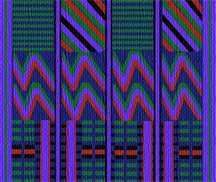Maps & Atlases
World Bank e-Atlas of Global Development
- The World Bank eAtlas of Global Development maps and graphs more than 175 thematically organized indicators for over 200 countries, letting you visualize and compare progress on the most important development challenges facing our world. Most indicators cover several decades, so you can see, for example, how “life expectancy at birth” has improved from 1960 up through the latest year. Video introduction to the e-Atlas.
UC Atlas of Global Inequality (University of California)
- The mission of the UC Atlas of Inequality is to provide online teaching resources and tools to enable student exploration of global change. Aspects of 21st Century global integration and inequality present great challenges to university teaching. The UC Atlas of Global Inequality attempts to address these challenges using the Internet, Geographic Information Systems (GIS) technology and new graphical capabilities of digital media to enhance learning in Geography, Sociology, Economics, Health, Technology and Environmental Studies. The Atlas integrates data, maps, and graphs to create an interactive web site for accessing and analyzing information addressing global change and inequality.
Globalis - an interactive world map
- Globalis is an interactive world atlas where you decide what is to be displayed on the map. Globalis aims to create an understanding for similarities and differences in human societies, as well as how we influence life on the planet. Globalis.gvu.unu.edu is a collaboration between the Norwegian UN Association, UNEP/GRID-Arendal, UNU/Global Virtual University, the University College of Hedmark and the INTIS schools. The project is supported by the Norwegian Ministry of Foreign Affairs and the Norwegian Agency for Development Cooperation.
Global Poverty Mapping Project
- The Global Poverty Mapping Project seeks to enhance current understanding of the global distribution of poverty and the geographic and biophysical conditions of where the poor live. Additionally, the project aims to assist policy makers, development agencies, and the poor themselves in designing interventions to reduce poverty. The Poverty Mapping Project at CIESIN (The Center for International Earth Science Information Network) at the Earth Institute at Columbia University is funded by the World Bank’s Japan Policy and Human Resource Development (PHRD) Fund.
Poverty Mapping
- Promoting the use of poverty maps in policy making and targeting assistance, particularly in the areas of food security and environmental management. This site offers you access to a comprehensive library of publications, newsletters, and articles related to poverty and the environment; links to finding additional information; specific information on food security, poverty, and the environment, including case studies from nine developing countries.
Worldmapper
- Worldmapper is a collection of world maps, where territories are re-sized on each map according to the subject of interest. University of Sheffield, UK.
Back to top |
